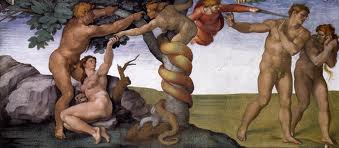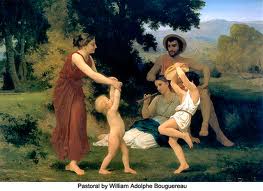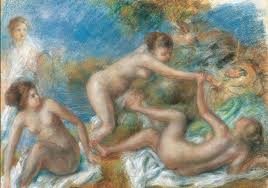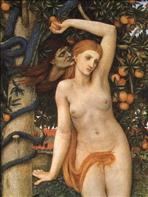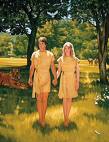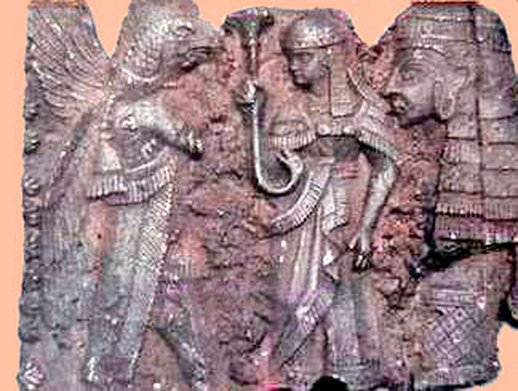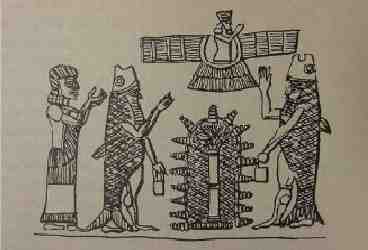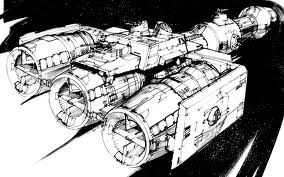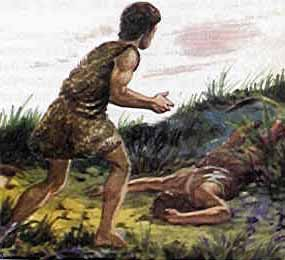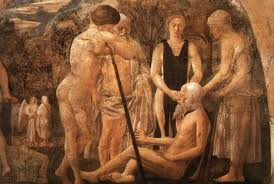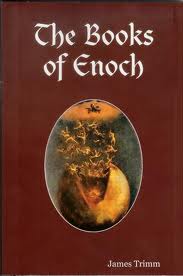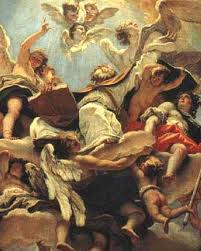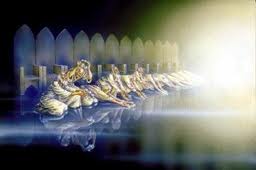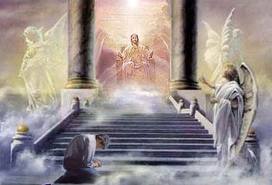|
Page 9 of 12 pages |
|
Adam loses Eternal Life, but NOT because of a Woman's Sin!
|
| The picture below illustrates how scientists picture the universe looked a split second after the moment of creation of the universe. |
|
Up until the time that mankind was created, about 300,000 years ago according to the records found recorded in cuneiform writing on permanent brick tablets, and in some cases illustrated with pictures carved in stone, the rulers of earth were "gods" not men. One of the "gods", Enlil by name, was apparently satisfied to keep it that way. But the down-side was that the "gods" had to do all the work, including the very hard labor of mining for gold. Gold that was necessary to heal the failing atmosphere of the home planet of these "gods" which they named Nibiru originally, but later changed to "Marduk" when that god attained ascendancy. Technically speaking, these "gods" were astronauts, using a highly developed technology to travel through space from planet to planet. |
|
The Seventh Tablet "The Lost Book of Enki" Page 151 "To the Abzu (Africa), away from Edin, let them be expelled! So did Enlil the command decree; from the Edin to the Abzu Adamu and Ti-Amat were expelled. In an enclosure among the trees Enki them placed; to know each other he left them." "With joy did Enki see what Ningishzidda had done come to be: With child Ti-Amat was frolicking. Ninmah came the birth-giving to watch: A son and a daughter, twins, to the Earth Beings were born! With wonderment did Ninmah and Enki watch the newborns. How they grew and developed was a marvel; days were as months, months to Earth years accumulated. By the time Adamu and Ti-Amat had other sons and daughters, the first ones were by themselves procreating!"
"Before one Shar of Niniru (3600 years) had passed, the Earthlings were proliferating. With understanding were the Primitive Workers endowed, of commandments they were comprehending; To be with the Anunnaki they were eager, for food rations they toiled well, Of heat and dust they did not complain, of backbreaking they did not grumble; Of the hardships of work the Anunnaki of the Abzu were relieved. The vital gold to Nibiru was coming, Nibiru's atmosphere was slowly healing." According to Zecharia Sitchin's interpretation of the ancient texts, subject also to what he has learned in more recent studies from these and other sources, this proliferation of the earliest humans, called "the adam" (small "a") in Genesis, occurred about 250,000 years ago. These were very primitive creatures, not really comparable with modern homo sapiens sapiens. It was because of another more personal, more intimate, and perhaps less ethical encounter of Lord Enki with two Earthling lasses later called "Dawn" and "Dusk" that fully modern "civilized man" had it's origins! The Seduction of "Dawn" and "Dusk" "The Lost Book of Enki" Page 166 "For seven Shars (25,200 years) the Anunnaki's lot was greatly eased, diminished was their discontent. By the proliferation of the Earthlings, what by itself was growing for all insufficient was; In three more Shars (10,800 years) of fish and fowl there was a shortage, what by itself grows Anunnaki and Earthlings did not satiate. In his heart, Enki a new undertaking was scheming; to create a Civilized Mankind in his heart he conceived. Grains that are sown by them to be cultivated, ewes that become sheep let them shepherd!" "In his heart Enki a new undertaking was scheming; how this to attain he contemplated. The Primitive Workers in the Abzu he for his scheme observed, The Earthlings in the Edin, in the cities and in the orchards he considered. What could for the tasks make them suited? What by the life essence has not been combined? The offspring of the Earthlings he observed, an alarming matter he noticed: By their repeated copulations, back toward their wild forebears they were degraded!" "Enki in the marshlands looked about, on the rivers he sailed and observed; With him was only Isimud, his visier, who secrets kept. On the river's bank, bathing and frolicking Earthlings he noticed; Two females among them were wild with beauty, firm were their breasts. Their sight the phallus of Enki caused to water, a burning desire he had. Shall I not kiss the young ones? Enki his visier Isimud was asking. I the boat will hither row, kiss the young ones! Isimud to Enki was saying."
"The boat thereto Isimud directed, from the boat to dry land Enki stepped. A young one to him Enki called, a tree fruit she to him offered. Enki bent down, the young one he embraced, on her lips he kissed her; Sweet were her lips, firm with ripeness were her breasts. Into her womb he poured his semen, in a mating he knew her. Into her womb she took the holy semen, by the semen of the lord Enki she was impregnated."
"The second young one to him Enki called, berries from the field she him offered. Enki bent down, the young one he embraced, on her lips he kissed her; Sweet were her lips, firm with ripeness were her breasts. Into her womb he poured his semen, in a mating he knew her. Into her womb she took the holy semen, by the semen of the lord Enki she was impregnated." "With the young ones stay, whether pregnancies come about ascertain! So was Enki to his visier Isimud saying. Isimud by the young ones sat down; by the fourth count their bulges appeared. By the tenth count, the ninth having been completed, The first young one squatted and birth gave, by her a male child was born; The second young one squatted and birth gave, by her a female child was born." "At dawn and dusk, which a day delimit, on the same day the two were born, The Gracious Ones, Dawn and Dusk, thereafter in legends they were known. In the ninety-third Shar the two, by Enki fathered, in the Edin were born. (93 Shars = 3600 X 93 = 334,800 earth years). Word of the births Isimud to Enki quickly brought. By the births Enki was ecstatic: Whoever such a thing has ever known! Between Anunnaki and Earthling, conception was attained, Civilized Man I have brought into being!"
"To his vizier Isimud Enki instructions gave: A secret must my deed remain! Let the newborns by their mothers be suckled; thereafter into my household them bring. Among the bulrushes in reed baskets have I them found! Thus to all you will say!" (Obviously the Hebrews reused this story in their history of Moses.) "By their mothers were the newborns suckled and nurtured; To Enki's household in Eridu thereafter Isimud them brought. Among the bulrushes, in reed baskets, have I them found! So did Isimud to all say. Ninki (Enki's wife) to the foundlings a liking took, as her own children she raised them. Adapa, the Foundling, the boy she called; Titi, One with Life, the girl she named. ("Titi" in Sumerian is roughly equivalent to "Hava" in Hebrew and "Eve" in English.) "Unlike all other Earthling children the twosome were: Slower to grow up than Earthlings they were, much quicker in understanding they were; With intelligence they were endowed, of speaking with words capable they were. Beautiful and pleasant was the girl, with her hands she was greatly dexterous; Ninki, the spouse of Enki, to Titi took a liking; all manner of crafts she was her teaching. To Adapa Enki himself teachings gave, how to keep records he was him instructing. The achievements with pride Enki to Isimud was showing, A Civilized Man have iI brought forth! to Isimud he was saying. A new kind of Earthling from my seed has been created, in my image and after my likeness!"
"From seed they food will grow, from ewes sheep they will shepherd, Anunnaki and Earthlings henceforth shall be satiated! To his brother Enlil Enki word sent; from Nibru-ki to Eridu Enlil came." The Lie about Adapa's Origin (The First "Evolution" Lie!) "In the wilderness a new kind of Earthling has come forth! to Enlil was Enki saying. Quick of learning they are, knowledge and craftwork to them can be taught. Let us from Nibiru seeds that are sown bring down, Let us from Nibiru ewes (lambs?) that sheep become to Earth deliver, Let us the new breed of Earthlings farming and shepherding teach, Let Anunnaki and Earthlings together satiated be! So was Enki to Enlil saying." "Akin to us Anannaki in many ways, indeed they are! Enlil to his brother said. A wonder of wonders it is, in the wilderness by themselves to have come about! Isimud was summoned. Among the bulrushes in reed baskets I them found! he said."
"Enlil the matter with graveness pondered, with amazement his head he shook. Indeed a wonder of wonders it is, a new breed of Earthling on Earth has emerged, A Civilized Man has the Earth itself brought forth, Farming and shepherding, crafts and toolmaking he can be taught!" "So was Enlil to Enki saying. Let us of the new breed to Anu word send! Of the new breed word to Anu on Nibiru was beamed. Let seeds that can be sown, let ewes (lambs?) that sheep become, to Earth be sent! So did Enki and Enlil to Anu the suggestion make." "By Civilized Man let Anunnaki and Earthlings become satiated! Anu the words heard, by the words he was amazed: That by life essences one kind to another leads is not unheard of! To them words back he sent. That on Earth a Civilized Man from the Adamu so quickly appeared, that is unheard of! For sowing and husbanding, great numbers are needed; perchance the beings to proliferate are unable?" "While the savants on Nibiru the matter contemplated, In Eridu occurrences of import took place: Adapa in a mating Titi knew, into her womb he poured his semen. There was conception, there was birth-giving: To twins, two brothers, Titi gave birth! Word of the birth to Anu on Nibiru was beamed: The twosome for conception are compatable, proliferation by them can occur!" You almost know the names of Titi's twins! One was Ka.in. The other Aba.el. "Let seeds that are sown, ewes that sheep become, to Earth be delivered, Let on Earth farming and shepherding begin, let us all be satiated! So did Enki and Enlil to Anu on Nibiru say. Let Titi in Eridu remain, the newborns to suckle and nurture, Let Adapa the Earthling to Nibiru be brought! So did Anu his dicision declare." |
|
|
|||||
| That
Anu wished to see this new Earthling named Adapa that Enki had lied to him
about, and wished to have him brought to Nibiru, the planet on which Anu
(the king of the gods) lived himself seems evident from several
Mesopotamian stories, but the stories are not consistent, and the excuse
for this trip varies with the stories. I will here give you
Sitchin's latest choice of the story he chooses to support.
I'd interpret the picture seal impression picture above as supporting this trip, although such picture seals do not come with labels, and can, like the stories, mean whatever the viewer wishes them to mean. The figure on the left is dressed as a priest-servant, and may be Adapa, who served Lord Enki in this role. The two figures in the fish-suits are astronauts, in this case Nergal and Dumuzi. The apparatus between them is an interesting depiction of a fishing boat or sky-chariot of some sort. And above them in the winged circle is Anu on the planet Nibiru. Adapa, the First Human Astronaut (Mislead by More Lies!) "Let Adapa the Earthling to Nibiru be brought! So did Anu his decision declare. By the decision Enlil was not pleased: Whoever of this would have thought, That by a Primitive Worker fashioning, like us the being would become, With knowledge, endowed, between Heaven and Earth will travel! On Nibiru the waters of long life he will drink, the food of long life he will eat, Like one of us Anunnaki shall the one of Earth become! So was Enlil to Enki and the other leaders saying." "By the decision of Anu Enki too was not pleased; sullen was his face after Anu had spoken. After Enlil had spoken, with Enlil his brother Enki agreed: Indeed, who of this would have thought! So to the others Enki did say. The brothers sat and contemplated; Ninmah with them was also deliberating. The command of Anu cannot be avoided! to them she said. Let Adapa by our young ones to Nibiru be accompanied, his fright to deminish, to Anu things explain! So did Enki to the others say. Let Ningishzidda and Dumuzi his companions be, By the way, Nibiru for the first time with their eyes also see! By Ninmah was the suggestion favored: Our young ones, on Earth born, Of Nibiru are forgetting, its life cycles by those of Earth are overwhelmed; Let the two sons of Enki, as yet unmarried, to Nibiru also travel, Perchance brides for themselves they shall find!"
"When the next celestial chamber from Nibiru did arrive in Sippar, Ilabrat, a visier of Anu, from the chamber stepped off. I have come to fetch the Earthling Adapa! So to the leaders he said. The leaders to Ilabrat Adapa presented; Titi and her sons to him they also showed. Indeed, in our image and after our likeness they are! So did Ilabrat say." "To Ilabrat Ningishzidda and Dumuzi, sons of Enki, were presented. To accompany Adapa on his journey they have been selected! to him Enki said. Anu his grandchildren to see will be pleased! So did Ilabrat say." "To hear instructions, Enki Adapa to him summoned. To Adapa thus he said: Adapa, to Nibiru, the planet whence we have come, you will be going, Before Anu our king you will come, to his majesty you will be presented; Before him you shall bow. Speak only when asked, to questions short answers give! New clothing you will be given; the new garments put on. A bread not on Earth they will give; the bread is death, do not eat! In a chalice an elixir to drink they to you will give; the elixir is death, do not drink! With you Ningishzidda and Dumuzi my sons will journey, to their words hearken, and you shall live! So did Enki Adapa instruct. This I shall remember! Adapa said."
|
|
It is my goal in this series of pages not to prove the Bible "wrong" but to fill in some details that the Bible's authors left out because they judged them unsuitable for those they saw as their target congregation or audience -- and to re-interpret some symbolism and parables for a more modern and better educated group of readers.
|

